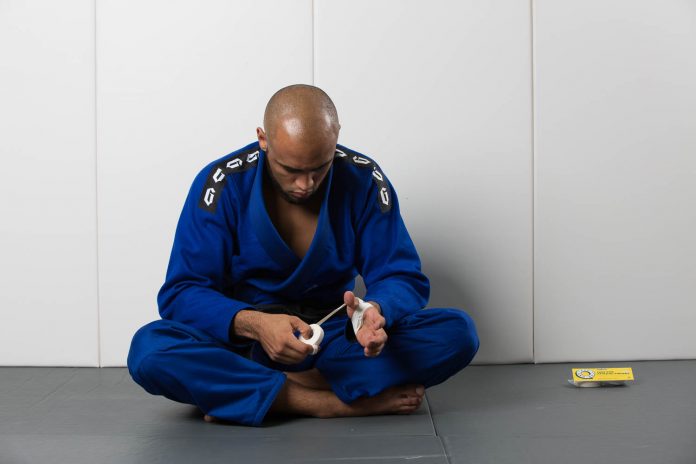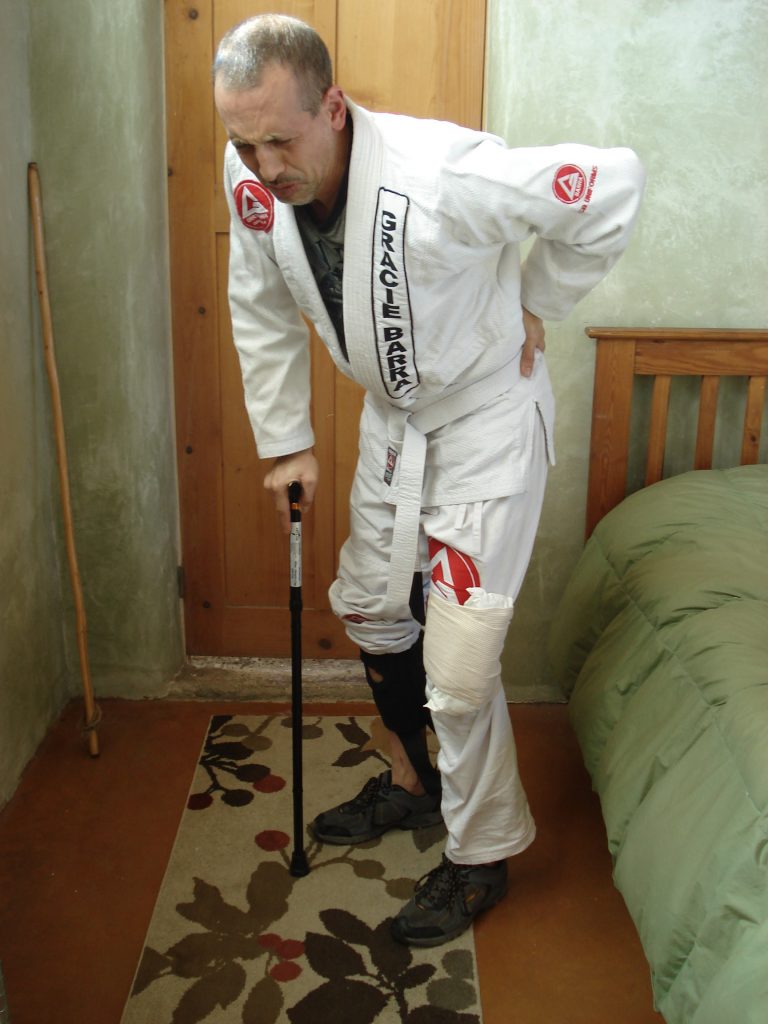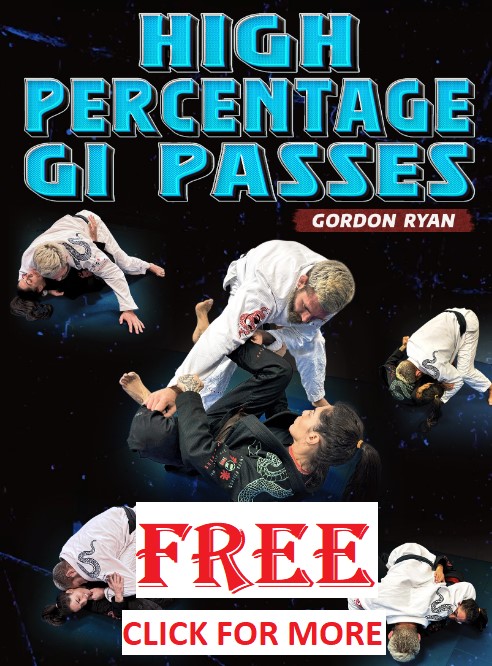
Brazilian Jiu-Jitsu is a martial art that has quite a big learning curve. Ther’s no shortcut to learning BJJ apart from putting in hours and hours of repetition. You won’t learn Jiu-Jitsu just by visiting a class from time to time. You won’t even learn if you can manage one session a week. OK, you will but it’ll take at least double the amount of time to progress. And if you already know that it takes about a decade of training BJJ to reach the black belt, would you really like to use twice that time for the same goal? On the other side of this spectrum, there’s also the issue of burnout, or training BJJ too much, too often. Finding the sweet spot is not science, but it does take trials and errors.
When you train grappling, the first thing you’re going to feel is pain. After your first couple of sessions, it’s the pain of grappling as physical activity. You’ll feel muscles working that you never knew were a part of you. As you get over the initial shock on your system, pain becomes more systematic, as you find out that the Gentle Art is not actually so gentle. Plus there’s the pain of your bruised ego every once in awhile. However, if your response to dealing with all these circumstances is just to train more, you risk overtraining BJJ. That can lead to a whole host of new issues that might steer you away from the art.
Finding balance is as important in your training schedule, as it is during guard passes. You need to find a balance in your personal life first. Working long hours, or day and night shifts and training BJJ regularly is a really hard thing to balance out. So, you need to make sure your grappling schedule works along with your daily obligations. Next, you need to make sure training itself doesn’t destroy you. By training, I mean both Jiu-Jitsu and supplemental conditioning. It doesn’t matter if you’re hitting the mats 6 times a week if you’re burnt out from lifting weights 7 days a week. Balance is key to constant progress. Too little and you’ll struggle to catch up. Too much and you’ll burn out, having your progress stall again.
Symptoms Of Overtraining BJJ

Next up is your energy level. While this might have a lot to do with food, it also connects to training frequency. Training too much is going to deplete your energy levels due to physical exertion alone. If you add to that the mood factor we discussed above, you have classical burnout syndrome. One more thing that usually stems from an overtrained body and mind is health deterioration. Getting sick more often, becoming more sensitive to certain allergens, or having overall decreased immunity can all be a result of over-exerting yourself.
Technical Burnout
From a technical standpoint, performance is a huge factor to consider. Too much Jiu-Jitsu is going to actually make you worse at Jiu-Jitsu. Getting a dip in performance might be a consequence of many things. Overdoing a certain move, learning a new one, or overtraining are all possible options. However, with overtraining you’re going to suffer a dip in overall performance, instead of just one aspect. A specific area in which you can see this is your reaction time. All the moves you timed near-perfectly before are going to be way off. Every roll, against every partner you’re just going to get frustrated instead of exciting your favorite moves.
The focus is another major thing. Maintaining high-level focus to solve problems under the high pressure and tension of Jiu-Jitsu is crucial for successful rolling. Too much training translates to reduced focus which, in turn, leads to poor decision making. This going to make otherwise prolific rolls a feature to resent. If you see your focus dipping despite you increasing your time on the mats, you need to reconsider your approach.

Solutions To Help You Recover
The logical thing to do when you face too much Jiu-Jitsu training is time off. However, time off can very easily turn into an extended hiatus, and eventually complete distancing from the art. In order to achieve the correct balance make sure you take the correct time off, along with accessory adjustments. Item off is easy – at least one week completely off BJJ is what the doctor prescribes. This might extend to two weeks in certain situations. The key thing here is not jumping straight back in. You have to take it easy or you’ll just repeat the process. Make sure you do not exceed three training days per week, plus one open mat day every once in a while. Having strategic rest days like this is going to give you a chance to let BJJ sink in and progress will ensue.
Making accessory adjustments includes altering your recovery and nutritional habits. If these are already in order then just the previous strategy is going to help you return fresh and ready to roll. If not, you’ll need to improve your overall lifestyle. That means increasing sleeping time and managing stress. Increasing sleeping time doesn’t just include adding more hours to your overnight sleep. You can throw in an odd nap or two to refresh yourself during the day.
Nutrition should already be something you have dialed in, especially if you’re a competitor. In any case, you need to make sure you give your body the optimal fuel to get you through your work/training week.
A Change In Routine
Finally, on a more specific topic, you need to look to change up your BJJ routine once you get back on the mats. This means freshening things up at least once a week. Drop one GI/No-Gi class and replace it with its counterpart. Look to switch up your rolling routine, and open up to learning completely new moves. In case you’re over-drilling things, try to roll live more often. Or the other way around, if rolling is all you do.
Also, consider visiting a neighboring gym during an open mat. Or, even better, take up a coaching role in your own academy. teaching others is a great way to polish your own Jiu-Jitsu skills.
Whenever you’re looking to refresh your approach to BJJ, looking at it from a conceptual standpoint is a great option. Nobody knows more about the conceptual side of BJJ than Kit Dale. He actually got his black belt in record time thanks to favoring concepts over techniques. Check out his “Art Of Learning Jiu-Jitsu” DVDs to freshen things up. Special offer for a limited time only!!!
No Time To Train BJJ? Here Is How To Make Time For Grappling


![Darce Choke Encyclopedia – Origins, Mechanics and Variations [2024] BJJ, choke, Brabo, BJJ Darce Choke, D'arce Choke, Darce BJJ Choke](https://bjj-world.com/wp-content/uploads/2017/11/JungPoirierLeeYahoo-218x150.jpg)









![Mastering Control From Top Position Trent Hidlay DVD Review [2024] Mastering Control From Top Position Trent Hidlay DVD Review](https://bjj-world.com/wp-content/uploads/2024/11/control-from-top-position-trent-hidlay-dvd-review-218x150.png)
![Foot Sweep the World Dainis Nguyen-Huu DVD Review [2024] Foot Sweep the World Dainis Nguyen-Huu DVD Review](https://bjj-world.com/wp-content/uploads/2024/11/foot-sweep-the-world-dainis-nguyen-huu-dvd-review-218x150.png)
![Front Headlock and Turtle Escapes Brian Glick DVD Review [2024] Front Headlock and Turtle Escapes Brian Glick DVD Review](https://bjj-world.com/wp-content/uploads/2024/11/headlock-and-turtle-escapes-brian-glick-dvd-review-218x150.png)
![Basic Closed Guard Jasmine Rocha DVD Review [2024] Basic Closed Guard Jasmine Rocha DVD Review](https://bjj-world.com/wp-content/uploads/2024/11/basic-closed-guard-jasmine-rocha-dvd-review-218x150.png)
![Don’t Stand Up Chris Wojcik DVD Review [2024] Don't Stand Up Chris Wojcik DVD Review](https://bjj-world.com/wp-content/uploads/2024/11/dont-stand-up-chris-wojcik-dvd-review-218x150.png)
![EMU Guard 2.0 Benjamin Power DVD Review [2024] EMU Guard 2.0 Benjamin Power DVD Review](https://bjj-world.com/wp-content/uploads/2024/11/emu-guard-2-0-benjamin-power-dvd-review-218x150.png)


![Just Pass Jay Rodriguez DVD Review [2024] Just Pass Jay Rodriguez DVD Review](https://bjj-world.com/wp-content/uploads/2024/11/just-pass-jay-rodriguez-dvd-review-100x70.png)
![Reverse De La Riva System Mikey Musumeci DVD Review [2024] Reverse De La Riva System Mikey Musumeci DVD Review](https://bjj-world.com/wp-content/uploads/2024/11/reverse-de-la-riva-system-mikey-musumeci-dvd-review-100x70.png)
![Finish on the Back Ethan Crelinsten DVD Review [2024] Finish on the Back Ethan Crelinsten DVD Review](https://bjj-world.com/wp-content/uploads/2024/10/finish-on-the-back-ethan-crelinsten-dvd-review-100x70.png)
![Basic Closed Guard Jasmine Rocha DVD Review [2024] Basic Closed Guard Jasmine Rocha DVD Review](https://bjj-world.com/wp-content/uploads/2024/11/basic-closed-guard-jasmine-rocha-dvd-review-100x70.png)
![No-Gi Defense Xande Ribeiro DVD Review [2024] No-Gi Defense Xande Ribeiro DVD Review](https://bjj-world.com/wp-content/uploads/2024/11/no-gi-defense-xande-ribeiro-dvd-review-100x70.png)





![Nicholas Meregali No-Gi System DVD Unpacked: A Detailed Review [2024] Nicholas Meregali No-Gi System DVD Unpacked: A Detailed Review](https://bjj-world.com/wp-content/uploads/2024/09/nicholas-meregali-no-gi-system-dvd-unpacked-review-100x70.png)
![Dima Murovanni Kill The Collar Tie BJJ Trendsetters DVD Review [2024] Dima Murovanni Kill The Collar Tie BJJ Trendsetters DVD Review](https://bjj-world.com/wp-content/uploads/2024/09/dima-murovanni-kill-the-collar-tie-dvd-review-100x70.png)

![Daisy Fresh WHITE BELT Wrestling Curriculum DVD Review [2024] Daisy Fresh WHITE BELT Wrestling Curriculum DVD Review](https://bjj-world.com/wp-content/uploads/2024/10/daisy-fresh-white-belt-wrestling-curriculum-review-100x70.png)
![Mastering Control From Top Position Trent Hidlay DVD Review [2024] Mastering Control From Top Position Trent Hidlay DVD Review](https://bjj-world.com/wp-content/uploads/2024/11/control-from-top-position-trent-hidlay-dvd-review-100x70.png)


![Kill The Underhook Dima Murovanni DVD Review [2024] Kill The Underhook Dima Murovanni DVD Review](https://bjj-world.com/wp-content/uploads/2024/10/kill-the-underhook-dima-murovanni-dvd-review-100x70.png)
![Intro To Hip Mobility for Guard Players Joshua Presley DVD Review [2024] Intro To Hip Mobility for Guard Players Joshua Presley DVD Review](https://bjj-world.com/wp-content/uploads/2024/09/hip-mobility-for-guard-joshua-presley-dvd-review-100x70.png)





